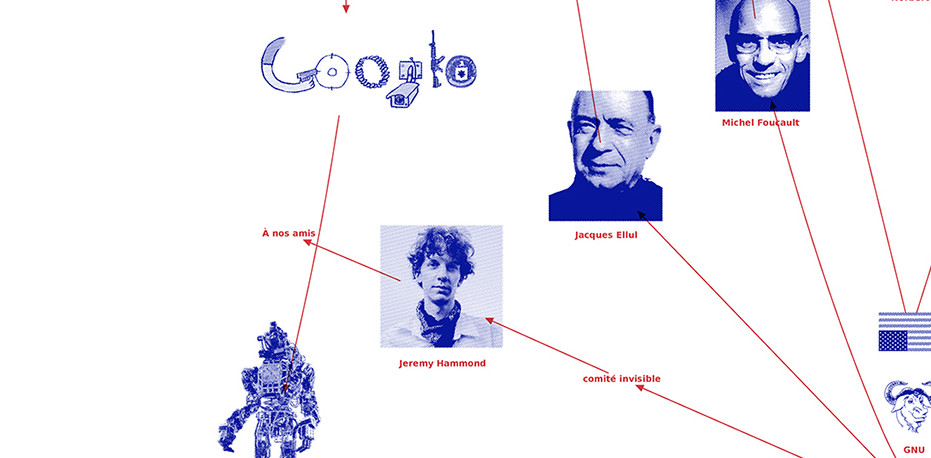RT @keiross: Can you design a better asked @guardiantech Yes, yes I
RT @CNASdc: RSVP today to attend the @terminator movie screening and discussion on
RT @CNASdc: RSVP today to attend the @terminator movie screening and discussion on
“We Are At the Very Beginning of a New Epoch:” Chelsea Manning On the Luxury of Privacy
"We Are At the Very Beginning of a New Epoch:" Chelsea Manning On the Luxury of Privacy
RT @csoghoian: The US droned a guy who wrote a RAT & hacked Facebook accounts for We live in the future
RT @csoghoian: The US droned a guy who wrote a RAT & hacked Facebook accounts for We live in the future
RT @AsimCP: Marvel villains are now quoting David Cameron
RT @AsimCP: Marvel villains are now quoting David Cameron
RT @BoingBoing: Ray Bradbury’s FBI File
Michael from Muckrock writes, "The FBI followed Ray Bradbury's career very closely, in part because an informant warned them that his writing was not enjoyable fantasy, but rather tantamount to psychological warfare." "The general aim of these science fiction writers is to frighten the people into a state of paralysis or psychological incompetence bordering on hysteria," the informant warned. "Which would make it very possible to conduct a Third World War in which the American people would believe could not be won since their morale had seriously been destroyed."
RT @GreatDismal: “Dystopia is already here, it’s just not…”
RT @GreatDismal: "Dystopia is already here, it's justnot..."
Valentino’s Ghost: Framing the Arab Image
In 1920s Hollywood, the Arab was a hero, as played by the iconic actor Rudolph Valentino in his "Sheik" movies. By the 1970s, Arabs and Muslims were depicted as embodiments of evil, not only in Hollywood films, but in children’s cartoons, the news, TV sitcoms, and even on radio. What happened? Valentino's Ghost examines the ways in which US foreign policy in the Middle East has changed the media's portrayals of Arabs and Muslims. Accused of bigotry towards Arabs and Muslims, American filmmakers are blamed for the bias which would never be applied to African-Americans, Jews, homosexuals, or any other minority group. This film lays bare the truths behind taboo subjects that are conspicuously avoided or merely treated as sound bites by the mainstream media.
RT @caseyoppenheim: Scary reality: Google now has ability to manipulate elections, public opinion, Internet privacy and much
Research I have been directing in recent years suggests that Google, Inc., has amassed far more power to control elections—indeed, to control a wide variety of opinions and beliefs—than any company in history has ever had. Google’s search algorithm can easily shift the voting preferences of undecided voters by 20 percent or more—up to 80 percent in some demographic groups—with virtually no one knowing they are being manipulated, according to experiments I conducted recently with Ronald E. Robertson . There are at least three very real scenarios whereby Google—perhaps even without its leaders’ knowledge—could shape or even decide the election next year. Whether or not Google executives see it this way, the employees who constantly adjust the search giant’s algorithms are manipulating people every minute of every day. The adjustments they make increasingly influence our thinking—including, it turns out, our voting preferences.
